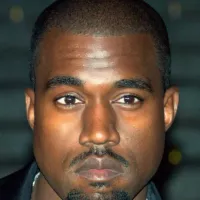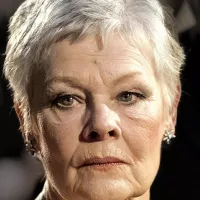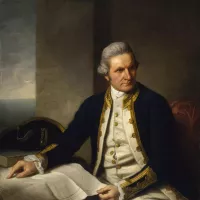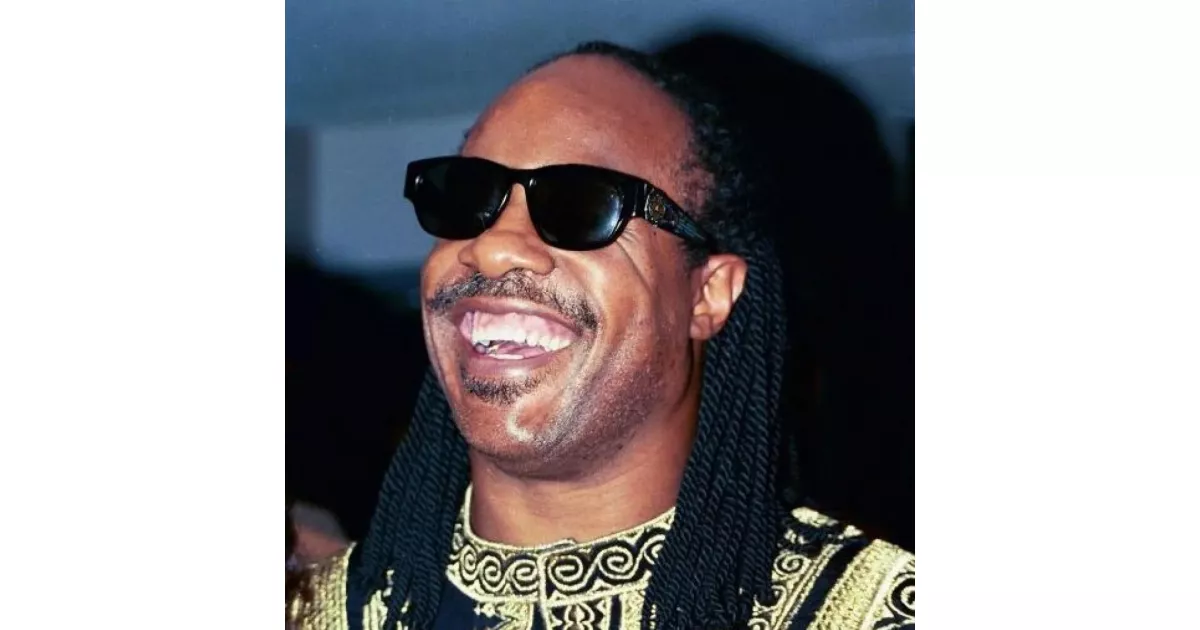Stevie Wonder, born Stevland Hardaway Morris, is a highly influential American singer-songwriter, musician, and record producer. Blind from infancy, he became a child prodigy, signing with Motown's Tamla label at age 11. Wonder is celebrated for his pioneering use of synthesizers and electronic instruments, revolutionizing R&B in the 1970s. He is credited with transforming R&B, pop, soul, gospel, funk, and jazz music into complex album-oriented works, known for their cohesive nature and socially conscious themes. He is considered a pioneer and influence by musicians across a range of genres.
November 1967: Honorary degree from Newcastle University to Martin Luther King Jr.
In November 1967, Martin Luther King Jr. received an honorary degree from Newcastle University. This event was later recognized when Stevie Wonder was awarded the Freedom of the City of Newcastle upon Tyne for his campaign to establish a U.S. national holiday for Martin Luther King Jr.'s birthday
1969: Performance at Harlem Cultural Festival
In 1969, a young Stevie Wonder performed at the Harlem Cultural Festival, which was captured in the documentary 'Summer of Soul'. His performance included 'It's Your Thing' and a drum solo.
1970: Marriage to Syreeta Wright
In 1970, Stevie Wonder married Motown singer-songwriter Syreeta Wright.
1971: Where I'm Coming From hints at Wonder's "classic period"
Some observers see aspects of Stevie Wonder's 1971 album Where I'm Coming From as indications of the beginning of his "classic period", particularly its funky keyboard style.
1972: Divorce from Syreeta Wright
In 1972, Stevie Wonder and Syreeta Wright divorced amicably.
1972: Beginning of Classic Period
In 1972, Stevie Wonder's classic period began with the album Music of My Mind, where he gained personal control of production and programmed integrated songs for a concept album. Some consider Talking Book, released later in 1972, to be the true start of this period.
1973: Grammy Award for Album of the Year
In 1973, Stevie Wonder's album, Innervisions, won the Grammy Award for Album of the Year.
October 21, 1974: Speech and Song at UMass Boston
On October 21, 1974, during the Boston busing desegregation, Stevie Wonder spoke and led students in song at the University of Massachusetts Boston.
1974: Grammy Award for Album of the Year
In 1974, Stevie Wonder's album, Fulfillingness' First Finale, won the Grammy Award for Album of the Year.
February 2, 1975: Birth of Aisha Morris
On February 2, 1975, Yolanda Simmons gave birth to Stevie Wonder's daughter, Aisha Morris, who later inspired the song "Isn't She Lovely?".
1976: Grammy Award for Album of the Year
In 1976, Stevie Wonder's album, Songs in the Key of Life, won the Grammy Award for Album of the Year.
1976: Culmination of Classic Period
Stevie Wonder's "classic period" culminated in 1976, marked by his funky keyboard style, personal control of production, and the use of integrated songs in concept albums.
1976: End of Wonder's Classic Period
Stevie Wonder's "classic period" is generally agreed to have ended in 1976.
1977: Birth of Keita
In 1977, Yolanda Simmons gave birth to Stevie Wonder's son, Keita.
1979: Use of Melodian on Soundtrack Album
In 1979, Stevie Wonder used Computer Music Inc.'s early music sampler, the Melodian, on his soundtrack album Stevie Wonder's Journey Through "The Secret Life of Plants". This was his first digital recording and one of the earliest popular albums to use the technology.
1980: Campaign for Martin Luther King Jr. Holiday
In 1980, Stevie Wonder campaigned to make Martin Luther King Jr.'s birthday a federal holiday in the United States.
1983: Birth of Mumtaz Morris
In 1983, Stevie Wonder had a son named Mumtaz Morris with Melody McCulley.
1983: Rolling Stone Record Guide on Wonder's Influence
In 1983, the Rolling Stone Record Guide stated that Stevie Wonder's albums from his "classic period" "pioneered stylistic approaches that helped to determine the shape of pop music for the next decade."
1984: Academy Award Win
In 1984, Stevie Wonder won an Academy Award for Best Original Song for "I Just Called to Say I Love You" from the movie The Woman in Red.
1985: Release of 'Overjoyed'
In 1985, Stevie Wonder released the song "Overjoyed".
1995: Collaboration Peace
Syreeta Wright sang on Stevie Wonder's 1995's Conversation Peace.
1996: Grammy Lifetime Achievement Award
In 1996, Stevie Wonder won a Grammy Lifetime Achievement Award, adding to his collection of 25 Grammy Awards.
2001: Marriage to Kai Millard
In 2001, Stevie Wonder married fashion designer Kai Millard.
2003: Rolling Stone's 500 Greatest Albums of All Time
In 2003, Rolling Stone's "500 Greatest Albums of All Time" list included Innervisions at number 23, Songs in the Key of Life at number 56, Talking Book at number 90, and Music of My Mind at number 284.
2004: Rolling Stone's 500 Greatest Songs of All Time
In 2004, Rolling Stone's "500 Greatest Songs of All Time" list included "Superstition" at number 74, "Living for the City" at number 104, "Higher Ground" at number 261, and "You Are the Sunshine of My Life" at number 281.
May 13, 2005: Birth of Mandla Kadjay Carl Stevland Morris
On May 13, 2005, Stevie Wonder's 55th birthday, his younger son Mandla Kadjay Carl Stevland Morris was born to second wife Kai Millard Morris.
2005: Aisha Toured With Father
In 2005, Aisha Morris toured with her father Stevie Wonder, and appeared on his album A Time to Love.
2005: Kanye West's Aspiration
In 2005, Kanye West expressed that he was trying to compete with Stevie Wonder's Innervisions and Songs in the Key of Life with his own work.
May 31, 2006: Death of Lula Mae Hardaway
On May 31, 2006, Stevie Wonder's mother, Lula Mae Hardaway, died in Los Angeles at the age of 76.
2006: Grammy Win with Tony Bennett
In 2006, Tony Bennett and Stevie Wonder won a Grammy for Best Pop Collaboration with Vocals for their rendition of "For Once in My Life".
June 2008: Work on New Albums
In June 2008, Stevie Wonder was simultaneously working on two album projects: The Gospel Inspired by Lula and Through the Eyes of Wonder. He also considered a collaboration with Tony Bennett and Quincy Jones for a jazz album.
September 8, 2008: Wonder Summer's Night Tour in Europe
On September 8, 2008, Stevie Wonder began the European leg of his Wonder Summer's Night Tour in Birmingham, marking his first European tour in over a decade. The opening show took place at the National Indoor Arena in Birmingham and included eight UK gigs, some of which were filmed and released as 'Live At Last'.
June 2009: Montreal Jazz Festival Spirit Award
In June 2009, Stevie Wonder became the fourth artist to receive the Montreal Jazz Festival Spirit Award.
October 2009: Separation from Kai Millard
In October 2009, Stevie Wonder and Kai Millard separated.
2009: Michael Jackson Memorial Service
In 2009, Stevie Wonder sang at the Michael Jackson memorial service.
2009: Harmonica Playing on Grammy-Nominated Song
In 2009, Stevie Wonder's harmonica playing was featured on the Grammy-nominated song "Never Give You Up", featuring CJ Hilton and Raphael Saadiq.
2010: 2010 Tour
In 2010, Stevie Wonder's tour included a two-hour set at the Bonnaroo Music Festival in Manchester, Tennessee, an appearance at the Hard Rock Calling festival in Hyde Park, London, and appearances at England's Glastonbury Festival, Rotterdam's North Sea Jazz Festival, a concert in Bergen, Norway, and a concert in Dublin, Ireland, at The O2 on June 24.
August 2012: Divorce Filing
In August 2012, Stevie Wonder filed for divorce from Kai Millard.
2012: Etta James' Funeral and Whitney Houston's Memorial Service
In 2012, Stevie Wonder sang at Etta James' funeral and a month later, at Whitney Houston's memorial service.
October 2013: Celine Dion's Loved Me Back to Life Album
In October 2013, Stevie Wonder appeared on Celine Dion's studio album, Loved Me Back to Life, performing a cover of his 1985 song "Overjoyed".
2013: Recording New Material for Two Albums
In 2013, Stevie Wonder revealed he was recording new material for two albums, When the World Began and Ten Billion Hearts, in collaboration with producer David Foster, with plans to release them in 2014.
December 2014: Birth of Nia
In December 2014, Stevie Wonder's ninth child, Nia, was born to Tomeeka Robyn Bracy. Nia means "purpose" (one of the seven principles of Kwanzaa).
2014: Presidential Medal of Freedom
In 2014, Stevie Wonder received a Presidential Medal of Freedom from President Barack Obama, presented at a ceremony in the White House on November 24.
2014: Unreleased Albums
In 2014, Stevie Wonder's albums When the World Began and Ten Billion Hearts were not released, despite being in development.
October 2015: Vegetarianism on "The Late Late Show with James Corden"
In October 2015, Stevie Wonder, consistent with his spiritual vision, sang about becoming a vegetarian, and later a vegan, during the "Carpool Karaoke" segment on The Late Late Show with James Corden.
2015: Mark Ronson's Uptown Special Album
In 2015, Stevie Wonder was featured on two tracks on Mark Ronson's album Uptown Special.
2017: Marriage to Tomeeka Bracy
In 2017, Stevie Wonder married Tomeeka Bracy.
April 4, 2018: Joining Twitter and Honoring Martin Luther King Jr.
On April 4, 2018, Stevie Wonder joined Twitter with his first tweet being a five-minute video titled "The Dream Still Lives" honoring Martin Luther King Jr., encouraging viewers to share videos about their dreams using the hashtag #DreamStillLives.
2018: Aretha Franklin's Funeral
In 2018, Stevie Wonder sang at the funeral of Aretha Franklin.
2018: Travis Scott's Astroworld Album
In 2018, Stevie Wonder was featured on the track "Stop Trying to Be God" on Travis Scott's album Astroworld.
July 6, 2019: Kidney Transplant Announcement
On July 6, 2019, at a concert in London's Hyde Park, Stevie Wonder announced that he would be undergoing a kidney transplant in September.
October 2020: Launch of So What the Fuss Records and New Singles
In October 2020, Stevie Wonder announced the launch of his new vanity label, So What the Fuss Records, via Republic Records. This marked the first time his music was not released through Motown Records. He also released two singles: "Can't Put It in the Hands of Fate" and "Where Is Our Love Song", with proceeds from the latter benefiting Feeding America.
October 2020: Development of Through the Eyes of Wonder and The Gospel Inspired by Lula
In October 2020, while promoting his recent singles, Stevie Wonder mentioned Through the Eyes of Wonder as a potential album featuring both singles, and The Gospel Inspired by Lula as a future album he might record with Motown.
2020: Revisions to Rolling Stone's 500 Greatest Albums/Songs
In the 2020 edition of Rolling Stone's lists, Songs in the Key of Life was promoted to number 4, Talking Book to number 59, "Superstition" to number 12, "Higher Ground" to number 113, "You Are the Sunshine of My Life" to number 183, and "Signed, Sealed, Delivered (I'm Yours)" was included at number 203.
June 2021: Appearance in Summer of Soul Documentary
In June 2021, Stevie Wonder appeared in the documentary Summer of Soul, directed by Ahmir "Questlove" Thompson, which showcased the Harlem Cultural Festival of 1969. The documentary featured never-before-seen footage of a young Stevie Wonder performing.
October 2022: 50th Anniversary of Talking Book
In October 2022, Stevie Wonder celebrated the 50th anniversary of his album Talking Book.
2023: Freedom of the City of Newcastle upon Tyne
In 2023, Stevie Wonder was awarded the Freedom of the City of Newcastle upon Tyne, England, in recognition of his campaign to establish a U.S. national holiday for the birthday of Martin Luther King, Jr.
2023: Death of Tony Bennett
Tony Bennett, who recorded "For Once in My Life" with Stevie Wonder and won a Grammy, died in 2023.
May 13, 2024: Ghanaian Citizenship Conferral
On May 13, 2024, Stevie Wonder's 74th birthday, he was conferred Ghanaian citizenship by Ghana's President Nana Akufo-Addo, taking the Oath of Allegiance and receiving his Certificate of Citizenship at Jubilee House in Accra.
May 2024: George Peabody Medal for Outstanding Contributions to Music and Dance in America
In May 2024, Stevie Wonder was a recipient of the George Peabody Medal for Outstanding Contributions to Music and Dance in America, the highest honor awarded by the Peabody Institute of Johns Hopkins University.
August 21, 2024: Performance at the Democratic National Convention
On August 21, 2024, Stevie Wonder performed "Higher Ground" at the 2024 Democratic National Convention and endorsed Vice President Kamala Harris in the 2024 United States presidential election, emphasizing the importance of courage over complacency.
August 30, 2024: Release of 'Can We Fix Our Nation's Broken Heart'
On August 30, 2024, Stevie Wonder released "Can We Fix Our Nation's Broken Heart," his first new song in four years.
2024: Ranked Fifth Greatest Keyboard Player
In 2024, Neil McCormick of The Daily Telegraph ranked Stevie Wonder the fifth greatest keyboard player of all time.
2024: Death of Quincy Jones
Quincy Jones, who was planning a collaboration jazz album with Stevie Wonder and Tony Bennet, died in 2024.
Mentioned in this timeline

Travis Scott Jacques Bermon Webster II is a highly successful...

Barack Obama the th U S President - was the...

Michael Joseph Jackson the King of Pop was a highly...

Martin Luther King Jr was a pivotal leader in the...

Kanye West professionally known as Ye is a highly influential...

Whitney Houston nicknamed The Voice was a highly acclaimed American...
Trending

31 minutes ago Rosamund Pike recalls Judi Dench's 'naughty' side, calling her a 'mischief maker'.

2 hours ago Declan Rice's behavior scrutinized after derby win; Scholes deems him too emotional.

2 hours ago Donovan Clingan shines for Trail Blazers: Draft prospect improves shooting and raises questions.

32 minutes ago James Cook and Dion Dawkins to appear at Dick’s House of Sport opening.

2 hours ago Shakira's Mexico City Concert: Security, Tickets, and Traffic Updates

2 hours ago Courteney Cox wears 90s jeans, stays overnight with on-screen husband Greg Kinnear.
Popular

Jesse Jackson is an American civil rights activist politician and...

Susan Rice is an American diplomat and public official prominent...

Barack Obama the th U S President - was the...

Michael Joseph Jackson the King of Pop was a highly...

XXXTentacion born Jahseh Dwayne Ricardo Onfroy was a controversial yet...

Bernie Sanders is a prominent American politician currently serving as...
